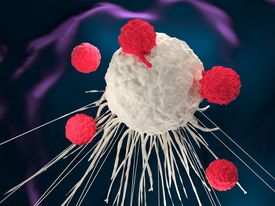Biomarkers and Testing
 WHAT IS GENETIC TESTING?
WHAT IS GENETIC TESTING?
Genetic testing is a test that uses blood or saliva to look for changes, sometimes called mutations or variants, in your DNA. DNA is shared with family members. Therefore, if there is a genetic change, family members may have the same change which will alert them to possible conditions that run in the family. Genetic testing may help disclose whether a future or current pregnancy will have a genetic condition, may help to diagnose a genetic condition, and may help guide in cancer prevention and with treatment planning.
IT IS IMPORTANT TO NOTE THAT GENETIC TESTING IS NOT THE SAME AS BIOMARKER TESTING!! If you would like more information on genetic testing, please visit MyFaultyGene.org, a nonprofit organization which provides information and assistance to individuals whose family medical history suggests genetic testing might be helpful in identifying an increased risk of disease due to a genetic mutation.
WHAT ARE BIOMARKERS AND WHY ARE THEY IMPORTANT?
Biomarkers are molecules that can tell your medical team what is happening inside your body. They may be able to determine how your cancer is responding to treatment and/or what treatment may be the best option for care. The information found through biomarkers and through genetic material require testing through the lab.
The lab analysis will either use a tissue (tumor) or fluid (blood, saliva, or urine) sample. This evaluation can be called genomic testing, molecular profiling or testing for mutations. It will allow for genes, proteins, and hormones to be studied. Results can take from two to six weeks. Your physicians can use the results of these tests to make informed decisions about your treatment. Researchers and scientists can utilize the biomarker data to help create new treatment options.
WHO SHOULD HAVE BIOMARKER TESTING?
Anyone that has been diagnosed with cancer should have biomarker testing and is even more important if the cancer is advanced.
WHEN SHOULD BIOMARKER TESTING TAKE PLACE?
Your medical team should talk about biomarker testing immediately. If they haven’t, bring it up yourself. It is an important discussion.
Scientists have not identified biomarkers for every type of cancer, although, some biomarkers may be important for multiple types of cancer. Researchers are studying more biomarkers for different cancer types.
Here is a brief list of some common biomarkers and their associated cancer type(s):




